A quick note about some of the photos in this post: They really don't capture the Li River valley well, and are more of a suggestion than accurate depiction. The place is really amazing.
After breakfast, we all boarded our bus (getting better at it with practice!) and drove through Guilin City. Just as in Nanning, there seemed to be construction everywhere but here it all seemed limited to 2 or 3 stories high. I also noticed that the majority of houses had at a vegetable garden, some quite large; there seemed to be a much higher level of self-sufficiency than back home, at least in older neighborhoods. Effie gave us a lot of information about the area during our drive, and said she was proud to be Zhuang, the majority non-Han registered minority prevalent in the region.[1] She also proudly pointed out that the Li is China's 3rd longest river, beaten only by the famous Yellow and the mighty Yangtze.
We reached our departure point[2] where an entire flotilla of cruise boats moored three deep(!) awaited tourists from China and many other countries. All the boats shared a common design: long & low, enclosed central cabin with lots of big windows, elevated observation decks fore & aft. Some boats had big enclosed galleys while others just had a large stove aft on the lower level deck... and I made a note to myself to be careful with my choices at lunch.
We carefully made our way up, then back down slippery metal stairs to the tables reserved for our group, the S and B families taking the one to starboard while AJ & I grabbed window seats on the port side along with Lisa & Effie and a young European couple who didn't speak much English. The entire fleet soon set sail, amazingly without anyone getting bumped or rammed.
Almost immediately, we began encountering people (mostly young men) standing on long, narrow bamboo rafts floating in the middle of the channel. They would wait for us to get close, then pole their raft directly into our path and slide out of sight to one side or the other at the last second -- then grab a handhold and be pulled along just long enough to sell fish, produce, or chickens to the crew at the boat's stern. It was all very much business as usual, and no one fell into the river; we decided that it was a good thing, since it meant at least some of our lunch would be fresh.
The passing scenery began to demand attention, with karst hills jutting up at odd angles and looking unlike any place I'd been before. Sheets of undulating rock jutted out from the base of many hills where softer minerals had eroded away forming odd shapes that reached right into the water and there were small caves scattered everywhere, making it look like the hills were melting into the river -- which, in hindsight, was exactly what they were doing!
It was very sunny and very hot, but there was a nice breeze so our entire group congregated on the forward deck for a while, where we quickly learned two things about the Pipsqueak. First, she did not like hats; no matter how much AJ tried to protect her from the strong sun, that sun bonnet was pushed off, pulled off, or dragged off, until AJ eventually gave up. Second, the Pipsqueak did not like loud noises; every time the ship's horn sounded (quite frequently at first, because there was a lot of traffic on the river) she would jump, getting obviously more upset each time until AJ retreated back to our table. The other mommies followed suit, leaving just the menfolk -- and frequently just me -- outside for much of the cruise. I didn't mind; I was just enjoying some of the landscapes I'd been reading about for many years.
Traffic on this part of the river seemed to grow in inverse proportion to the width of the channel, and I soon realized that in China, boats are driven like cars -- hewing to the "there's no such thing as too close" school of steering and passage. I also noticed a steady increase in patches of very tall, almost fluffy-looking bamboo along the shore, which at lunch I learned was called Phoenix Tail.[3]
I began to feel myself sizzling in the sun and I figured lunchtime was approaching (I could see food being cooked aboard some of the other boats) so I joined everyone in the air-conditioned cabin. While we chatted, Effie brought over a large bottle of a local delicacy: snake wine. That's not the brand name; it's a type of white wine with at least one actual (poisonous) snake in the bottle -- and I mean full-size snake, not a one-inch gusano. The things don't rot due to the alcohol content of the liquor, which is "white wine" in much the same way that moonshine is barrel-aged whiskey. At first we all took turns either holding the bottle and turning down offers for a taste or not holding the bottle and turning down offers for a taste but after a short discussion both Papa S and Papa B bravely bought a glass. They insisted that it was pretty good, but I swear that the paint on the wall by their glasses began to bubble...!
The Pipsqueak latched onto a plastic cup (she was fascinated by transparent things, especially if they made noise when crumpled) and had a lot of fun with it -- and then began to play and interact with AJ in a much more intimate manner than ever before. They were making faces at each other and every now & then Miri would try to rearrange Mommy's nose (a habit that lasted until well after we came home) to the amusement of all present. She was smiling, and laughing out loud, and having a grand old time. We'd gotten used to her wanting to be held but this was a whole new baby girl -- happy and bubbly with a smile like a thousand-watt bulb. (Her tongue still seemed to stick out this way and that way on its own, but now she laughed when it did.) Newly-minted mother and daughter were connecting on a whole new level, and we were finally seeing the Pipsqueak's real personality emerge.
Lunchtime rolled around, which proved to be a bit of an adventure. One had to climb up a steep flight of slippery metal stairs, negotiate the buffet crowd with a paper plate, then climb back down the steep flight of slippery metal stairs whilst carrying a droopy paper plate loaded with tasty-looking items that all seemed to have an unnatural affinity for the effects of gravity (all while naking one's way past people moving in the opposite direction on their own forays to the buffet). Even the uber-cool twenty-something semi-goth guy in the corner of the cabin, who'd plugged himself into his iPod as soon as he boarded and barely budged since, joined in on and almost lost his cool. The food turned out to be worth the effort, and Miri actually let Mommy eat a little bit between attempts to fling plate, napkin, utensils, and/or everything else around the table.
Getting ready for more scenery-watching after lunch, I had one of those "Whoa!" moments. There were many nationaities represented on the boat and I had been periodically trying to identify (and yes, occasionally eavesdrop on) the various languages I heard spoken around me. I found myself thinking how strange it seemed to hear a Chinese guide speaking Spanish... and then caught myself with the realization that English was just as "strange" for the local guides as any other language. (Dude, you are the foreigner here, remember?) It had been a long time since I'd had to think like that, and I was bemused by how out of practice I had become.
I did manage to strike up a conversation with the young couple sitting with us, who turned out to be part of a tour group from Spain. We quickly found common ground speaking about adoptions because the young woman's mother worked for one of Spain's largest adoption agencies. When told we had waited almost five years, she replied that the wait for Spanish families looking to adopt non-special needs children from China was already up to eight years and still growing. (The numbers for families in the U.S. reached roughly the same point by the end of 2011.)
We had been told to keep an eye out for water buffalo, and back out on deck a short time later they were becoming a common sight. In the area, they are (were?) considered a family's prize possession and live lives of relative leisure; except for when seasonal planting or harvesting is in progress, they spend all their time grazing, bathing in the river, and watching silly tourists on boats ooh and aah as they float past. We also began to see a lot of water taxis that run between river towns, long narrow bamboo rafts (newer taxis are made with PVC pipes) with a bench or two in the middle and a big exposed engine at the stern attached to a propeller at the end of a long pipe that served both as drive and steering.
I continued enjoying the passing scenery and began to see tents or sun shades set up on the rocky shore of the river, sometimes in the middle of nowhere. They turned out to be temporary shops & snack bars, with the clientele either walking from nearby towns or arriving & departing via water taxi -- just pull up, haggle a bit, then continue on your way with your purchases and a cold drink! (The shopkeepers also enjoyed the lack of landlords and utility bills.) I also noticed occasional groups of children picking through rocks along the river, and Effie explained they were collecting the small freshwater snails that were considered a local delicacy.
After an unitelligible announcement over the PA system, a crowd began to gather on the observation deck as we approached a particularly large cliff at a sharp bend in the river. Effie & Lisa told us this cliff could be seen in ancient Chinese paintings and travlogues going back centuries; according to legend it was here that the hand of nature took a knife and carved the image of seven horses into the hillside, but that they could only be seen by those who possess wisdom, and only the wisest could see all seven figures. There was some joking about the role snake wine might have played in people first seeing horses in the pattern of plants & different ores in the cliff face, but we all gamely took the challenge to heart. Apparently, I'm quite a wise guy, because I eventually counted seven horses...
The land began to flatten out, with more farms & fish traps along the shore (some being tended as we watched) and more sandbars in the river itself. We had been leapfrogging other tour boats since first casting off, but now the true extent of the local tourist industry became obvious as the boats all had to travel single-file through the narrow channel.
The hills began to close in on the river again, and AJ & I nicknamed one of the larger formations "the sleeping man" -- can you see him?
There were even more villages & farms here, and thus more water buffalo -- at least one of which I saw get swamped by a passing boat's wake while swimming across the river, only to emerge unscathed on the other shore moments later. We also began to see a few of the cormorants that the locals used for fishing, an ages-old practice that was slowly disappearing.[4]
By now most of the young 'uns had dozed off, and Miri was getting crochety due to it being naptime with nary a crib in sight -- a problem she solved by putting herself into yet another gravity-defying position and falling asleep in Mommy's lap. This gave AJ a chance to carefully get up and, carrying the gently-snoring Pipsqueak, get some fresh air and check out the scenery sans tinted window. The channel was wide here, so while our captain again played leapfrog with other boats I think I figured out why some people were complaining they felt a bit "gurgly" after lunch -- when one boat passed us, I could clearly see the serving staff using water from the boat's bilge pump to clean the plates and utensils! There was also a growing number of very large flotillas of ducks on the river here, and we saw several examples of ducks chasing chickens up & down riverside stairs.
After retreating back into the air conditioning, it became obvious that we were approaching the end of the cruise. Miri woke up and was content just snuggling with Mommy, so I began gathering our things and we all prepared to start hoofing it once again. Construction along the shore proved Yangshuo (long a favored spot for backpackers & bike tours) was something of a boom town, and an actual traffic jam was beginning to form on the river itself as boats began slowing & jockeying for docking. On shore, the town seemed to be spreading up & down the riverbanks while tucking itself into all available nooks & crannies between the still-amazing karst hills. Aside from a lot of new architecture that was trying hard to look old (including a pagoda I thought was very old until I zoomed in and found clear glass and air conditioners), we also noticed a lot of people ashore.
We docked near a couple of older gentlemen charging 2 Yuan each for photos with their cormorants and, paying attention to some warm advice, joined the mass of humanity moving into the town past the dockside SD card and ice cream vendors. Once away from the river and surrounded by buildings, there was no breeze and I quickly soaked through my shirt in the sauna-like heat. Stopping periodically to close up ranks while marveling at the sights and sounds of the most bustling of bustling market towns any of us had ever seen, our group began the long uphill trek through the town.
The famous West Market Street was an experience, with a wild variety of small shops, restaurants, bars, and tourist traps immersed in a soup of blazing heat and the sound of hundreds of people all trying to talk over each other at the same time. We had to get to our waiting bus so we could only stop for a moment here and there, but (uncomfortable as it was) the experience is still a good memory. We knew we weren't the only ones suffering from the heat and noise, because several businesses (with all signage in English!) advertised they were a good place to get out of the heat and find a quiet place to sit. Through it all, Miri was a little bit crochety a couple of times but basically handled the heat and noise with aplomb. She watched all the action and movement calmly from her stroller, impressing us with her capabilities as a traveler.
The crowds thinned out slightly as we neared the top of the hill but by the time we made it to a small square at the far end of the street we were all seriously wilting. We still had a long walk to the bus but there were a couple of trams(like you find in the parking lots of big amusement parks, so Lisa went to haggle with one of the drivers on our behalf -- only to have another family walk up and hijack it out from under her! She shook it off and made arrangements for another tram to carry us the last half-mile or so to where our bus was parked. We gladly plopped down on the seats and rested while the driver finished his lunch.
Just as our driver started the tram's engine, a tall Caucasian man accompanied by two little Chinese girls emerged from the crowd. He did a double-take in our direction, then came walking over quickly. He pointed to Miri with a big smile and asked, "How old?" I replied "Thirteen months" but the tram began moving before I could say anything else. As we pulled away, he pointed to the smaller of the two girls and said something I didn't quite catch (I think he was saying she had just joined the family) and then yelled out, "Congratulations!" and waved goodbye with a big smile. I've often wondered since then who he was and how things have worked out for his family. (If you're part of that family, please let me know!)
The ride to our bus was a hair-raising adventure, apparently designed to give its passengers as close & intimate a relationship with passing traffice as possible while they hung on for dear life. The closest of many close calls was a massive tour bus that swung past in a turn at most two feet from our kneecaps; the "Long King" badge on its grill remains crystal-clear in my memory. AJ's breathless comment to me as we shakily climbed back aboard our own bus a few minutes later was, "I wanted to tell him I didn't have my daughter long enough to get run over yet!"
Everything was stowed away, the air condining kicked in, and had soon left Yangshuo behind. While not as spectacular as in the river valley, the karst hills still dominated the landscape while the areas closest to the road sported small hamlets surrounded by fields (mostly rice paddies). Effie & Lisa asked if wanted to see how rice was grown and everyone thought it would be interesting, so the driver pulled over to the side of the road when we reached an easily accessible rice farm. The mommies elected to stay on the bus with the little ones while the rest of us tumbled out the door to trespa- ...er, visit the nearest paddy.
Although not the usual postcard terraced mountainside rice paddies, this type of wide, flat field is much more common, and I was surprised at how little water there was (apparently the paddies are only flooded at certain times). The rice looked a bit like oversize heads of wheat on cornstalks, and when a couple of the group popped some grains into their mouths they said it was crunchy with a slightly nutty taste; apparently rice doesn't taste like rice until after it's been husked & washed. After some photos, it was back on the road.
The road itself was interesting... There were small drainage ditches running alongside, sometimes just a couple of inches deep but often presenting a sudden drop of two or three feet just inches from the edge of the pavement with nary a guardrail in sight. The few small towns we passed through were equally intimate with the road, with some buildings only a few feet from passing traffic and often not even a curb to differentiate between sidewalk and roadway. (Sometimes the difference was more obvious because some towns had no paving in front of the buildings.) Much of the space between road and building (if there was any) was usually filled with an array of two -and three-wheeled vehicles, many being Frankenstein unions of the business end of a motorcycle welded to something else with wheels. We also had periodic reminders that this was a rural area when we'd pass older men or young children herding cows, ducks, or the occasional water buffalon along the side of the road.
Even more interesting than the side of the road was the traffic on the road. Despite two clearly-marked lanes on each side, I quickly lost count of the "holycows" and "omigoshes" as we repeatedly watched vehicles of all sizes & shapes spread out three and four abreast, weaving between each other and often avoiding head-on collisions by nearly invisible margins. For example, in the photo below, I draw your attention to the large white tour bus cutting off the blue tricycle truck -- which is itself crowding the smaller 3-wheel vehicle that had just pelted the motorcycle with dust and dirt -- as it veers back into its lane after swinging out onto the wrong side of the road into the path of an equally large bus (just barely visible on the left) in an attempt to get past the slower traffic only to be stymied by a large truck (just barely visible between the bus & blue carrier) that had itself just veered into oncoming traffic to avoid flattening another small vehicle... Yep, just another typical drive on a Chinese road... la de da, who's worried, not <yikes!> me...
Reaching Guilin, we stopped at an art gallery for a demonstration of traditional ink painting. Followed by the usual curious looks (and smiles for the kiddos) we made our way through a group of local folks at the entrance and negotiated a double flight of stairs with full strollers to find ourselves almost the only non-employees in the large & crowded gallery. We passed through a series of rooms with almost every style of art imaginable, Eastern or Western, modern or ancient (including a few photorealsitic nudes that both embarrassed and amused the two older girls), and came to a room with several rows of chairs in front of a large easel and table. Before the demonstration, a docent taught us a little about the rules governing traditional Chinese art. (Example: Instead of using proportion to show distance, objects in the background are inked more faintly.)
She then introduced a young(ish) man who picked up a brush from the table, dipped it in water and then a classic hollowed-out stone holding black ink, and began to move the brush over a large piece of paper suspended on the easel. He made a short sideways stroke, then moved the brush smoothly downward with a short sidways jerk at the end, then repeated the motions until I blurted out, "That's bamboo!" and seconds later the abstract lines that seemed to just appear under the brush resolved into a black & white still life of bamboo stalks, with the ones in back fainter & less sharp than those in the foreground. The artist (who didn't speak English) finished off the painting with the classic red "chop" and the docent told us it had taken him 26 years to learn his craft from his father, who had learned it from his father. (They were going to discard the painting, but I bought it for a few Yuan as a very special souvenir.)
We all explored the gallery's wares for a while, but Miri began to get crochety and fussy. We tried all kinds of tricks to calm her down without success until realizing it was the first day she hadn't gotten a bottle around that time -- making it the last day she didn't get a bottle at that time! We all bought a few assorted paintings of various sizes and returned, at long last, to our hotel.
AJ & I set up a Skype session with our folks, and for the first time Miri interacted directly with them on the screen, reacting directly to their voices and movements. It was obvious that that quiet little bundle of baby we'd med on the 12th was beginning to come out of her shell and had a personality all her own. Then as we got ready to head downstairs for dinner, Miri reached out to be picked up as AJ bent over her, then nestled into her shoulder for the trip to the dining room... and kept everyeone entertained for most of the meal. At first she busied herself with an empty water bottle, banging it on the table & crushing it into different shapes, then quietly contemplating it and starting all over again like an artist not quite satisfied with their creation. She soon began to babble to herself, moving on to almost actually singing, making faces at Mommy and Uncle Brian and laughing at the rest of the group seated around the table.
Once our dinner arrived, Miri again showed she "was excited to the food"[5] by inhaling as much congee as we could get into her, then reaching for -- and sampling! -- most of what was on her mommy's plate, stopping only to exchange the occasional silly face with my (absolutely thrilled) sister. Anytime someone at the table would pay attention to her, she'd respond with smiles and giggles and more babbling, stopping only for more food. The Pipsqueak took a short break from asking for food uring which we had to scramble to take away the chopsticks... AJ's drinking glass... the silverware... my drinking glass... more chopsticks... the soup bowl... the napkin... AJ's plate... the teapot. Then it was time for more food, and after a particularly hilarious set of funny faces made by mommy, the Pipsqueak actually stood up in the high chair and babbled a speech at everyone!
Once the shock had worn off -- AJ & I had gotten into the habit of seating Miri between us, so we both grabbed her simultaneously when she stood up -- the Pipsqueak decided that high chairs were for wimps and insisted on sitting on Mommy's lap (probably because it brought her closer to the food). After totaling two bowls of congee and samples of our dinners, Miri kept burbling and babbling and singing, occasionally even laughing as if she'd just told herself a particularly good joke. We just went along for the ride, amazed at how expressive & verbal our little changeling had suddenly become... and loving every minute of it. We knew there was still a (potentially) bumpy road ahead, but our concerns over bonding & adjustment issues seemed to be fading away as we watched.
It had been a long, very hot, eventful day, so eventually even the Pipsqueak's batteries began to run low and everyone made their way back upstairs to our rooms for the night. Miri gave us low-key version of the dinner show as AJ got her ready for bed, then quickly dropped off to sleep after being put in the cribs. I did a quick blog update as AJ fell asleep, and then -- unforgiving as my mattress was -- quickly dozed off myself.
The entire day had been an amazing adventure... I had some really nice souvenirs & memories... and my niece had finally begun to open up and show her true, happy self! Everything was looking good...
[1] The majority of Chinese belong to the Han ethnic group, but there are (were?) 56 registered minorities in the country, most being associated with specific regions. Three of these minority groups (includign the Zhuang) are so large that they officially held some level of autonomy -- thus the official name of what most Americans call "Guangxi Province" is Guangxi Zhuang Autonomous Region. During our time in China, we were repeatedly told by women cooing over the Pipsqueak, "She's not Han!" so we assumed she was likely at least half Zhuang; DNA testing was inconclusive but shows her genome is a regional mix.
[2] In my original posts back in 2010/2011, I said our departure point was Zhujiang, but more recently learned that the boat terminal is "Zhujiang Dock" and there is no town or municipality called "Zhujiang" in the area.
[3] Phoenix Tail bamboo was not a locally native plant, but was native to the home province of former Premier Chou En-Lai. At some point he had taken one of these same river cruises and made a comment about how beautiful that type of bamboo would look against the backdrop of the karst landscape and... well, let's just say that when the head of the Chinese government says a plant would look good somewhere that it doesn't grow naturally, a whole lot of it gets transplanted! The Phoenix Tail now grows in the river valley on its own, often reaching heights of 50 feet or more. You can see some of the natural Phoenix Tail forests in the famous "treetop duel" scene in Crouching Tiger, Hidden Dragon.
[4] Once common, fishing cormorants are steadily being replaced with more mechanized ways of making a living, but some families still follow the old tradition. The birds are valued members of the family, with carefully-monitored diets, days off to rest, and (even nowadays) honorable burial when they die. They are trained to dive for fish underwater, with small metal bands around their necks preventing them from swallowing their catch so that their owners can collect the fish when the birds resurface. The vast majority of these birds are now used primarily as a feature for the tourist trade.
[5] "She is excited to the food" is a direct quote from her December 2009 medical report at the SWI. The same medical report officially states, "she does pooh-pooh once or twice a day, pee-pee 7 or 8 times a day."


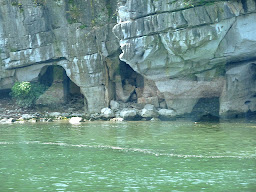












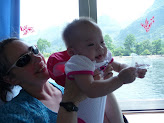



























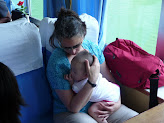








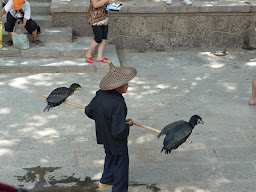






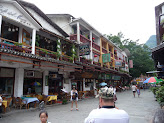



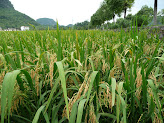


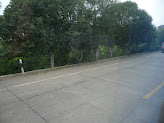



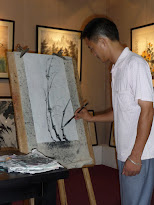

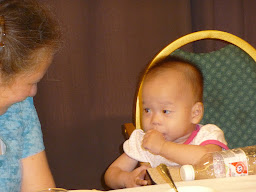


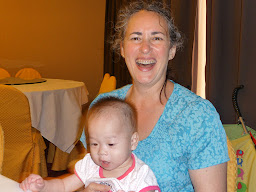

No comments:
Post a Comment